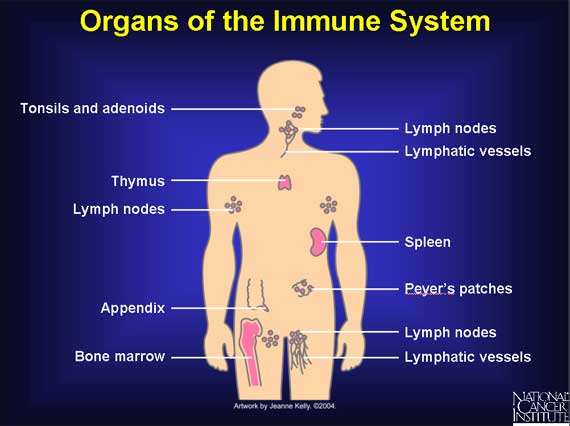|
The organs of your immune system are positioned throughout your body.
They are called lymphoid organs because they are home to lymphocytes--the white blood cells that are key operatives of the immune system. Within these organs, the lymphocytes grow, develop, and are deployed.
Bone marrow, the soft tissue in the hollow center of bones, is the ultimate source of all blood cells, including the immune cells.
The thymus is an organ that lies behind the breastbone; lymphocytes known as
T lymphocytes, or just T cells, mature there.
The spleen is a flattened organ at the upper left of the abdomen. Like the lymph nodes, the spleen contains specialized compartments where immune cells gather and confront antigens.
In addition to these organs, clumps of lymphoid tissue are found in
many parts of the body, especially in the linings of the
digestive tract and the airways and lungs--gateways to the body.
These tissues include the tonsils, adenoids, and appendix.

< Previous | Index | Next Slide > |